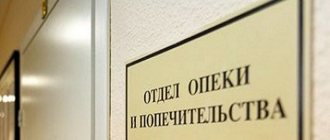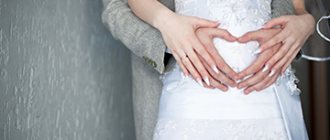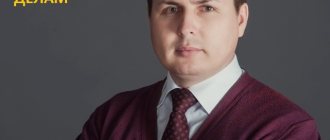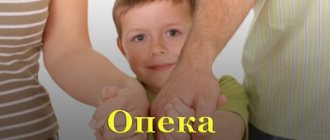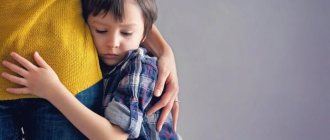Home / Guardianship / What guardianship checks when inspecting an apartment
There are many rumors and speculations about visits and checks of families by representatives of guardianship authorities. Parents are worried that dust on the shelves or a child's crying will be a reason for removing the child from the family. Failure to understand the purpose and reasons for testing often leads to misunderstandings.
In this article we will understand why guardianship authorities visit families at their place of residence, how inspectors and parents should behave so that the inspection does not violate the law.
Legislation
The family legislation of the Russian Federation is constantly being updated - this is how the state seeks to protect the rights of children and parents, eliminate the problem of homelessness, and improve the process of transferring under guardianship and trusteeship.
The main legislative acts concerning inspections by the Guardianship and Trusteeship Authorities (CCA) at the place of residence of children:
- The Family Code of the Russian Federation (for example, paragraph 2 of Article 78 obliges the POO to inspect the place of residence of the child or family to which he is being placed for upbringing, and draw up an act based on the results of the inspection; paragraph 1 of Article 122 establishes a 3-day period for inspecting the place residence of a child left without parental care);
- Federal Law “On Guardianship and Trusteeship” No. 48 dated April 24, 2008 (Clause 11, Article 8 establishes the powers of the PLO to check the living conditions of the wards, Article 24 obliges everyone who became aware of abuse by a guardian or trustee, a violation of the rights of the child in their ward , a threat to his life and health - report to the PLO);
- The procedure for conducting a survey of the living conditions of minors and their families, approved by Order of the Ministry of Education No. 4 of January 10, 2019.
- Rules for checking by guardianship and trusteeship bodies the living conditions of minors in their care, approved by Decree of the Government of the Russian Federation No. 423 of May 18, 2009).
- Rules for the selection and training of guardians and trustees, approved by Government Decree No. 423 of May 18, 2009.
Frequency of inspections
Checking the child’s living conditions can be carried out either based on signals from third parties or on a planned basis. In the second case, there is a frequency with which such examinations are carried out. Typically, routine checks are organized in families where an adopted child lives.
The frequency of surveys of the living conditions of a child in guardianship families is as follows:
- the first review takes place 30 days after guardianship has been assigned;
- in the first year of living in a new family, quarterly checks are carried out;
- further examination is carried out every six months.
If the PLO authorities receive a signal about a violation of the rights and living conditions of a child, then the employees of this institution have the right to conduct an unscheduled inspection with the availability of an appropriate order.
The families where the adopted child lives are also periodically checked, namely:
- the first check is carried out 5-7 months after adoption;
- the second check is carried out 11-13 months after adoption;
- the next one – in 23-25 months;
- further, after 35-37 months.
The frequency of subsequent checks will be determined individually for each family.
How does the guardianship check the child’s living conditions?
The purpose of the visit is to check the living conditions at the place of residence of the child, guardian or trustee, for compliance with the child’s rights to care, safety, absence of a threat to life and health, availability of a place for the child to sleep and leisure, availability of food, seasonal clothing.
The law provides for the obligation of the PLO to verify the place of residence....
- a child who was left without parental care , or a child living with his parents, if a message was received from citizens, representatives of an educational, medical, educational institution about the presence of a threat to the life or health of the child (according to Article 122 of the RF IC, clause 2 of the Examination Procedure living conditions of minor children);
- a citizen who wants to be a guardian or trustee of a child left without parental care (clause 8 of the Rules for the selection and training of guardians and trustees);
- a ward child living with a guardian or trustee (clause 2 of Article 78 of the RF IC, clause 2 of Article 24 of the Federal Law “On Guardianship and Trusteeship”, clause 2, clause 7 of the Rules for checking the living conditions of minor wards).
Thus, the basis for checking OOP may be:
- notification that the child was left without parental care (due to illness, death, incapacity, deprivation or restriction of parental rights, long-term absence, neglect of parental responsibilities);
- notification that the health or life of a child living with parents is at risk;
- an application from a citizen wishing to become a guardian or trustee;
- decision/order/instruction to transfer a child into guardianship or trusteeship.
Expert opinion
Dmitry Nosikov
Lawyer. Specialization: family and housing law.
Another possible basis for verification is the intention of the parents or other legal representatives to make a transaction with property belonging to the child. The most common case is the sale of an apartment or house, a share in which belongs to the child, and the purchase of another residential premises. Such a transaction is subject to mandatory approval by representatives of the public organization (according to Article 56, Article 64 of the RF IC, Part 4 of Article 292 of the Civil Code of the Russian Federation, Art. 8, Article 21 of the Federal Law “On guardianship and trusteeship”). The main requirement for purchased housing (house or apartment): its cost should not be lower than the cost of housing that belonged to the child.
Checks of families with a natural child
There is a common belief that PLO representatives visit families to remove children for any “violations of order” such as dirty dishes, broken toys, or crying children. However, it is not.
The reason for a visit from a PLO representative is almost always a notification received orally or in writing from citizens (relatives, neighbors, random witnesses to the incident) or employees of government institutions (schools, kindergartens, clinics, hospitals).
A threat to the life or health of a child may be caused by:
- cruel treatment of a child by a mother or father;
- alcohol or drug abuse;
- assault on the sexual integrity of a child;
- unfavorable living conditions (cold, damp, insects or rats, lack of sleeping space for a child, dirt);
- lack of food;
- lack of seasonal clothing.
Sometimes the notification is received without reason, due to a quarrel between parents during a divorce, a misunderstanding with neighbors, relatives, and even strangers who witnessed a suspicious incident.
Example The PLO received a telephone call from citizen B., who reported that her ex-daughter-in-law abused alcohol and did not take care of her two daughters. According to B., there is no food in the house, water and electricity are turned off for non-payment, the children go to school dirty and unkempt, and often cry.
PLO workers visited the apartment where the mother and daughters live. Based on the results of the check, it turned out that the message from B. was false. The woman, with whom two daughters remained to live after a recent divorce, has no signs of alcohol dependence, the living quarters are in order, food and clean seasonal clothes for the children are available. The woman said that the false message from her mother-in-law was caused by dissatisfaction with the divorce and disagreement with her granddaughters living with their mother.
Upon receipt of the notification, representatives of the PLO are required to conduct an inspection within 3 days .
Guardian/trustee checks
The first check at the place of residence is carried out by the PLO at the stage of considering the candidacy of a guardian or trustee.
According to clause 8 of the Rules for the selection and training of guardians and trustees, approved by Decree of the Government of the Russian Federation No. 423 of May 18, 2009, a visit to the place of residence occurs 3 business days after the submission and consideration of an application from the guardian/trustee.
The POO inspects the residential premises, assesses the living and sanitary conditions, the suitability of the housing for living with a child, and also assesses the number of residents, the relationship between them, the personal qualities and motives of the person who wants to become a guardian/trustee, and his ability to raise a child.
Subsequent checks at the place of residence of the guardian or trustee - scheduled and unscheduled - are carried out by the PLO after the decision to appoint guardianship has been made and the child under guardianship has begun to live with the guardian/trustee.
The frequency of scheduled inspections is determined by clause 4 of the Rules for checking by guardianship authorities the living conditions of minors in their care, approved by Decree of the Government of the Russian Federation No. 423 of May 18, 2009:
- 1 time within 1 month after the appointment of guardianship;
- 1 time every 3 months during the first year after the appointment of guardianship;
- 1 time every 6 months during the second and subsequent years after the appointment of guardianship
Unscheduled inspections are carried out if the PLO has received notification of failure to fulfill duties or a possible violation of the rights of a child under his care.
Checking a family with an adopted child
As for families of adoptive parents, the OPP conducts residence checks only if a child is adopted without parental care. If a child is adopted within the family (for example, by a stepfather or stepmother - after marriage to the mother or father), checks are not carried out.
Scheduled inspections of the educational institution are carried out after the court decision on adoption has entered into legal force:
- during the first six months;
- over the next six months;
- during each subsequent year.
After 3 years from the date of the court decision, scheduled inspections are carried out only when necessary. Unscheduled inspections are carried out if the Public Education Office receives a notification of a violation of the rights of an adopted child.
Reasons for inspection by guardianship authorities
If the guardianship authorities receive a complaint about problems in a family where minors live, employees of this institution are obliged to respond to such a statement within three days. Not only families with adopted children can be checked, but also those with natural parents.
The following situations may be reasons for checking a child’s living conditions:
- avoidance of raising a child;
- children are sick for a long period;
- parents neglect their responsibilities regarding the child;
- a situation arises in the family that poses a threat to the health and life of a minor;
- parents or guardians are absent for several days.
To obtain information about the child’s family and living conditions, employees of the relevant authorities do not have to visit his home. They can do the following:
- conduct a personal conversation with all family members separately, including minor children;
- conduct a survey among people (teachers, doctors) who can describe the situation in the family from the outside;
- study a number of specific documents;
- supervise a child in a kindergarten or other educational institution;
- perform other actions that will help understand the model of relationships within the family.
Requirements for the child’s place of residence
The requirements for an apartment or residential building in which a child lives are determined by the Procedure for conducting a survey of the living conditions of minors, approved by Order of the Ministry of Education No. 4 of January 10, 2019.
According to paragraphs. 6.1 - 6.4 of this document, the residential premises in which the child lives must meet the following requirements:
- living condition of the apartment or house;
- area and number of rooms in an apartment or house (according to the number of residents);
- improvement of living space, availability of repairs, furniture, household appliances, communications, electricity and water supply, heat;
- order and cleanliness in all rooms, absence of dampness, foreign odors, parasites (rats, bedbugs, flies, cockroaches), fresh bedding and clean dishes;
- safety (according to the child’s age: no risk of falling or injury, no access to electrical appliances, gas, sharp objects, instruments, medicines);
- the presence of a separate place (room or furnished area) for sleep, leisure, play, education of the child under his care;
- availability of food and/or ready-made food (according to the age of the child under care);
- availability of hygiene items (diapers, soap, washing powder).
What does the Guardianship and Trusteeship Authority check?
The area of an apartment or house, the number of rooms and residents, the presence of a separate room (or part of a room with a sleeping and “working” place) for a child are important, but not the most important indicators that representatives of educational institutions take into account. Especially if the inspection is unscheduled, ordered in connection with a report of a possible violation of children's rights.
During the inspection, representatives of the PLO must establish:
- Child's health status . There should be no signs of violence on the body of the child under guard (bruises, bruises, wounds), it should not look painful, emaciated or dehydrated;
- Grooming and cleanliness of the child’s body, face, hands, hair;
- Clothes and shoes . The child must wear clean and tidy clothes and shoes that are appropriate for his age, size, and season;
- Socialization , behavior and manners, communication skills of the child with relatives (parents, guardian/trustee, brothers and sisters) and strangers;
- The emotional state of the child;
- Upbringing and education , intellectual development. Attending kindergarten or school (according to age and development);
- The relationship of the child in his care with parents, guardian/trustee, and other relatives;
- Financial situation;
- Other circumstances that may indicate a violation of children's rights.
The main purpose of the inspection is to establish the safety and suitability of the residential premises for the child to live in, to ensure that the child’s needs (physical, mental, intellectual) are properly taken care of, to ensure the successful development and absence of a threat to the life or health of the child from parents, guardians/trustees, or outsiders persons
Expert opinion
Dmitry Nosikov
Lawyer. Specialization: family and housing law.
What do guardianship authorities pay attention to first?
One of the most common questions parents and guardians/trustees ask while awaiting an inspection is: What does the guardian look for during a residential inspection?
Since the first impression is the strongest, you need to meet PLO representatives in a clean and tidy manner. The quality of repairs, the high cost of furniture and appliances mean no more than the cleanliness and safety of the living space. Living rooms, kitchen, bathroom and toilet - everything must be clean and hygienic, safe for the child’s health.
Of course, in everyday life you cannot avoid stains, dust, and odors. But if representatives of the OOP find heaps of dirty clothes or dishes, cockroaches, drafts from windows, cold and dampness, lack of water, electricity or gas, which looks like the usual state of affairs, they will have to issue a warning or take measures to remove the child.
Powers of inspectors
Representatives of the PLO are not endowed with unlimited powers. Therefore, it is better for parents, guardians and trustees who are awaiting a visit from inspectors to understand in advance which actions are permissible and which are already abuse or violation.
The inspection of the housing is carried out by a representative of the public educational organization: independently or with the involvement of representatives of the school, kindergarten, clinic or hospital, or social protection authority.
During the check the following are allowed:
- inspection of all premises in an apartment or house (in the presence of the owner or tenant);
- inspection of a place (a separate room or part of a room) that is allocated for the child: for sleep, play and leisure, creativity and learning;
- conversations with the child, mother and father, guardian/trustee: about family life, the child’s leisure time and time spent together, methods of education, everyday circumstances;
- interviewing other people: relatives, neighbors, educators and teachers;
- observation of relationships, behavior, conversations, and everyday habits of the family;
- studying documents.
Representatives of the PLO do not have the right to inspect the refrigerator, bathroom and kitchen shelves, wardrobes, but may ask the parents, guardian or trustee to show food, hygiene items (for example, diapers, diapers) intended for the child.
How should parents, guardians and trustees behave?
The most common and serious mistake that frightened parents, guardians or trustees make is to interfere with the PLO employees in carrying out the inspection: not opening the door, not answering calls, threatening to call the police or sue.
Even if the reasons for the inspection seem unfounded to you (for example, reports from neighbors about abuse of their son or daughter are false), it is much more reasonable to politely and respectfully present this circumstance to the inspection officials.
Parents, guardians or trustees have the right to ask a representative of the educational institution to show official documents: a certificate, order or resolution on a scheduled or unscheduled inspection.
It would not be superfluous to invite a witness during the inspection - a local doctor (for example, if the reason for the inspection is a child’s injury), a teacher or educator, a relative, a neighbor. This will allow you to maintain a calm and friendly environment, avoid violations or abuse of authority on the part of the inspector, and monitor compliance with the law.
Remember that the removal of a child from the family (Article 77 of the RF IC), as well as restriction or deprivation of parental rights, is possible only on legal grounds and in accordance with the procedure prescribed by law.
Residential inspection report
Based on the results of the inspection, representatives of the public educational institution must draw up an Act - a document that contains information about the living quarters, the presence or absence of proper care for the child (clothing, food, warmth, cleanliness and safety), the presence or absence of circumstances that threaten the life or health of the child , hinder its full development, as well as conclusions and recommendations regarding the protection of the rights of the child.
The document includes the following data:
- OOP data: name, address;
- date of drawing up the Act;
- information about the child: full name, date of birth, place of residence;
- details of the child’s birth certificate or passport;
- details of the child’s legal representative: mother, father, guardian or trustee: full name, date of birth, place of residence;
- information about the child’s parents (full name, date of birth, place of residence, marital status, reasons for restriction or deprivation of parental rights);
- statement of the results of the inspection:
- data about the child (health status, socialization, appearance, upbringing and education);
- family and social connections (relatives, friends);
- living conditions (improvement of a house or apartment, area and number of rooms, condition, availability of a separate room or part of a room for sleeping, leisure, education of the child);
- family income data;
- information about the child’s property;
- circumstances that pose a danger to the life or health of the child;
- conclusion;
- signatures.
The act is drawn up on a standard form.
The form of the form and the period for preparing the Certificate of Inspection of the Residential Premises depends on the grounds and reasons for the inspection:
- if an inspection of a residential premises where a minor child lives is carried out on the basis of a received report of a violation of the rights of a child , an act form approved by Order of the Ministry of Education of Russia dated January 10, 2019 No. 4 (Appendix No. 3) is filled out - within 3 working days after the inspection .
- if a scheduled inspection is carried out at the place of residence of a child under guardianship , the report form approved by Order of the Ministry of Education and Science of the Russian Federation No. 1642 of December 29, 2014 is filled out within 10 days after the inspection (according to clause 11 of the Rules approved by Decree of the Government of the Russian Federation No. 423 of May 18. '09)
- if an inspection of the place of residence of a citizen who wants to become a guardian or trustee is carried out, an act form approved by Order of the Ministry of Education of Russia No. 4 of January 10, 2019 (Appendix No. 5) is filled out - within 3 days (according to clause 8 of the Rules approved by the Decree of the Government of the Russian Federation No. 423 dated May 18, 2009).
The report is drawn up in two copies and signed by the officials who conducted the inspection. One copy of the act, certified by the head of the educational institution, is sent to parents, guardians or trustees.
If the parents or other legal representatives of the child do not agree with the results of the inspection set out in the Act, the document may be challenged in court.
What exactly will they check?
Order No. 334 of the Ministry of Education and Science regulates the process of examining a child’s living conditions. PLO employees or the commission must conduct an inspection on the following points:
- the child’s appearance (neatness and well-groomed appearance of his clothes, hair, skin, etc.);
- baby's health;
- level of social adaptation of the child;
- level of upbringing and education (does the child go to educational institutions and does he have passes);
- the level of safety of the conditions in which the baby lives and develops;
- family composition (particular attention is paid to checking the child’s legal representative and how often he spends time with him);
- sanitary condition of housing (how often cleaning is carried out, the presence of trash in the apartment, etc.);
- grounds that will confirm the presence of threats to the health and life of the child, the fact of violation of his rights;
- financial situation of the family (average income level for each household member).
There are a number of conditions that can be classified as dangerous to the life, rights and health of a child:
- the presence of a large number of insects;
- unsatisfactory appearance of the child and other family members;
- the presence of unpleasant odors, which can be confirmed by the unsatisfactory condition of the housing;
- dirt and mess in the room;
- lack of seasonal clothing for the child, normal bed linen and other vital things;
- lack of sufficient food;
- lack of conditions for the child’s education and recreation;
- children's access to dangerous places in the house (gas stove, cutting objects, etc.);
- emergency condition of electrical wiring, gas stove, oven;
- questionable behavior of children;
- the presence of garbage, which indicates the presence of bad habits among household members;
- the presence of a large number of animals that spoil the sanitary condition of the premises.
From a lawyer
An inspection of the residential premises in which you live with your child or child under your care must be carried out in strict compliance with the law. The purpose of its conduct is not to violate the rights of the child and his parents, trustees or guardians, but to make sure that there is no threat to life or health.
A visit by PLO representatives rarely occurs suddenly and without reason. As a rule, it is preceded by conflicts with neighbors or relatives, educators, school teachers or doctors, as well as written warnings or conversations with representatives of the PLO. This allows you to prepare for the upcoming meeting, study your own rights and responsibilities of officials.
A mandatory stage of the procedure is drawing up an Inspection Report and submitting the document for review or challenge no later than 3 days (10 days) .
Expert opinion
Semyon Frolov
Lawyer. 7 years of experience. Specialization: family, inheritance, housing law.
If you believe that the inspection of a house or apartment was carried out without reason, without compliance with the law, if the Inspection Report contains inaccurate information, you have the right to appeal the actions or inactions of representatives of the PLO in court, having previously secured the support of a lawyer. You can ask a question and get a free consultation on any issue related to guardianship and protection of children's rights - by calling the hotline or via chat.
Attention!
- Due to frequent changes in legislation, information sometimes becomes outdated faster than we can update it on the website.
- All cases are very individual and depend on many factors. Basic information does not guarantee a solution to your specific problems.
That's why FREE expert consultants work for you around the clock!
- via the form (below), or via online chat
- Call the hotline:
- Moscow and the Region
- St. Petersburg and region
- FREE for a lawyer!
By submitting data you agree to the Consent to PD Processing, PD Processing Policy and User Agreement.
Anonymously
Information about you will not be disclosed
Fast
Fill out the form and a lawyer will contact you within 5 minutes
Tell your friends
Rate ( 1 ratings, average: 5.00 out of 5)
Author of the article
Irina Garmash
Family law consultant.
Author's rating
Articles written
612
What will they pay attention to during the inspection?
If the child’s parents or guardians know that they will be visited for an inspection, all household members must be brought into a neat appearance. This will be paid attention to first of all: the condition and cleanliness of clothing, the neatness of all citizens living in the apartment.
The receiving party should not once again be rude to the members of the commission and enter into disputes with them.
The cost of repairs and items in the room for inspection will not make any difference. It is important for them to show a clean apartment, without signs of pogrom and with working household appliances.
The general requirements for a child’s living conditions are as follows:
- maintaining order in the premises;
- the child has a separate place to sleep;
- the presence of sufficient food for the normal nutrition of all household members;
- availability of clean, seasonal children's clothing that will fit;
- Availability of a separate place for the child to study.
The receiving party does not need to quarrel with the OOP staff. In order to make a good impression about themselves, the child’s representatives can calmly inquire about what exactly caused such a check. During the inspection process, you should clearly and calmly answer all the questions posed, and also not interfere with the study of food for the child and his things. It’s better to present everything yourself in a friendly manner to the members of the commission.
Why are families with natural children checked?
Typically, families in which a child lives are aware in advance of the upcoming inspection by PLO employees. The reasons for conducting this examination may be the following situations:
- the signal was given by neighbors who constantly quarrel with their parents or are disturbed by their children;
- the spouse who is about to divorce applied for an inspection;
- the child’s teachers filed a complaint about his behavior with the PLO;
- employees of medical institutions reported that the parents refused to treat the child properly;
- other situations.
Most often, the initiators of checking the child’s living conditions are the relatives themselves.
Inspection report on living conditions of a minor
› Housing issue › Housing and communal services › How to fill out an inspection report on housing and living conditions.
21.09.2020
The act of examining the living conditions of a dysfunctional family is one of the documents on the basis of which conclusions are drawn about the need to provide support from the state or take appropriate measures to correct the situation. The preparation of such a document is characterized by certain features, knowledge of which will allow you to avoid negative consequences and obtain the expected result.
What kind of certificate is this: why is it needed, who issues it?
An inspection report regarding the clarification of the characteristics of a family’s living conditions is often drawn up by guardianship authorities and other monitoring organizations in order to identify violations of generally accepted norms.
This type of document is considered mandatory in the following circumstances:
- citizens expressed their intentions to adopt a child;
- it is necessary to take the minor into custody;
- there are suspicions of parental dishonesty;
- the child is registered with the IPD.
Such situations are often associated with the following circumstances:
- identifying facts of child abuse;
- non-compliance with hygiene by minors;
- serious problems with academic performance;
- lack of proper conditions for education;
- antisocial lifestyle of parents.
The act is often required when moving and selling real estate on the territory of which a minor is registered or he is one of the owners of the premises. Such a document allows you to make sure that the parents conscientiously fulfill their responsibilities and the rights of the child will not be infringed during the property transaction.
Often, the initiators of obtaining a certificate are citizens forced to live in dilapidated or dilapidated housing. Recognition of conditions as unsuitable allows them to receive the status of those in need of improved conditions and count on receiving assistance from the state. It can be expressed in the provision of a more comfortable property for living or the allocation of a subsidy, which can be spent on the purchase of other real estate.
The procedure for drawing up an inspection report on social and living conditions
The inspection report can be drawn up by specialists from various departments, depending on the circumstances that required its execution. The result will be a positive or negative conclusion, on the basis of which appropriate conclusions will be made.
In practice, the following options are possible:
- OOiP - receipt of an application about the desire to adopt a child or act as a guardian, the need to verify the fact of improper performance of the duties of legal representatives, raising the issue of deprivation of parental rights and the need to place a minor in a specialized institution;
- Educational organizations - a child’s poor academic performance, the appearance of inappropriate or aggressive behavior on the part of a student, the unkempt appearance of a minor or complaints on his part about mistreatment in the family;
- Medical institutions - recording signs of child abuse, suspicions of abuse and violence;
- Rospotrebnodzor - violations of sanitary and epidemiological standards in the premises, complaints from neighbors about the creation of an unfavorable living environment by residents;
